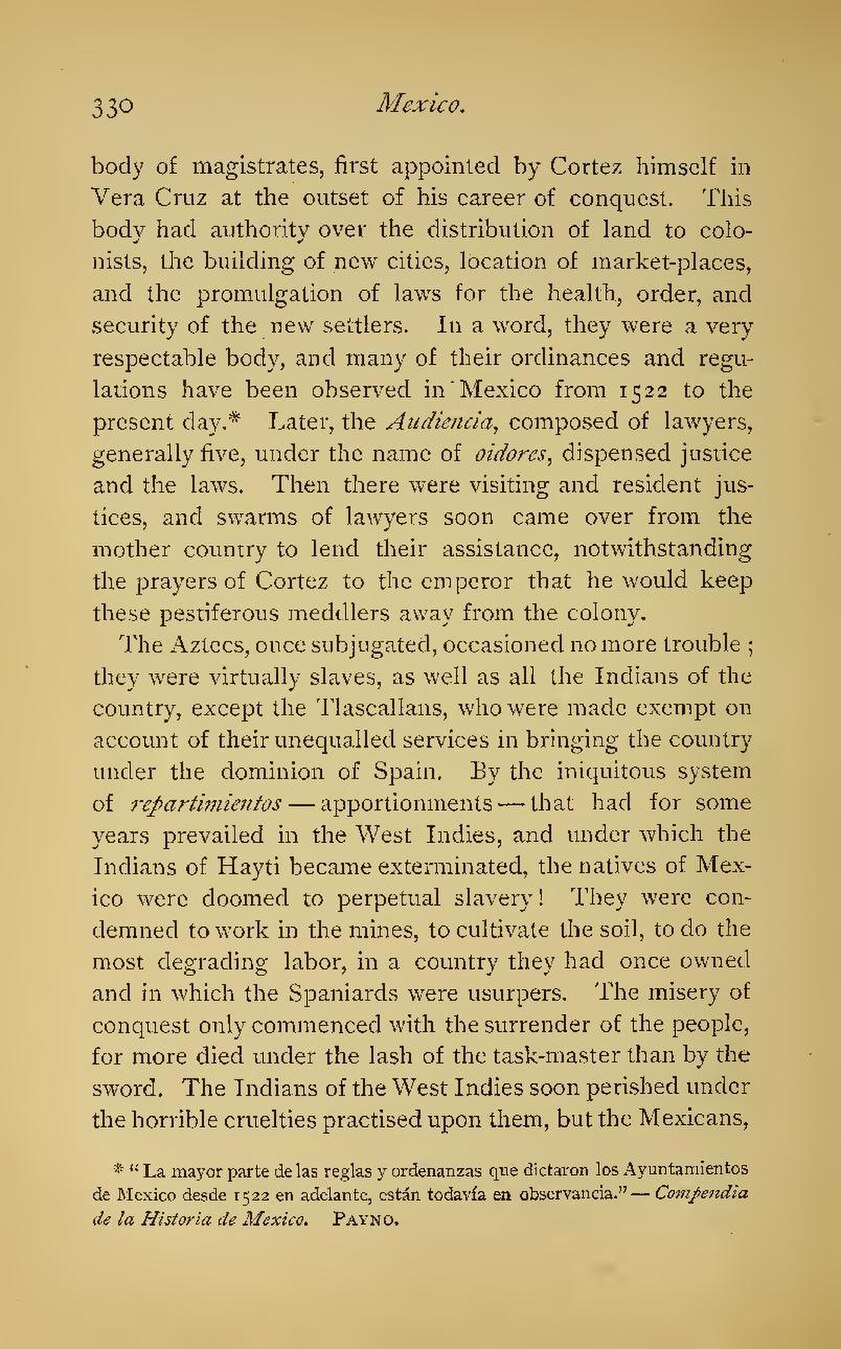body of magistrates, first appointed by Cortez himself in Vera Cruz at the outset of his career of conquest. This body had authority over the distribution of land to colonists, the building of new cities, location of market-places, and the promulgation of laws for the health, order, and security of the new settlers. In a word, they were a very respectable body, and many of their ordinances and regulations have been observed in "Mexico from 1522 to the present day."[1] Later, the Audiencia, composed of lawyers, generally five, under the name of oidores, dispensed justice and the laws. Then there were visiting and resident justices, and swarms of lawyers soon came over from the mother country to lend their assistance, notwithstanding the prayers of Cortez to the emperor that he would keep these pestiferous meddlers away from the colony.
The Aztecs, once subjugated, occasioned no more trouble; they were virtually slaves, as well as all the Indians of the country, except the Tlascallans, who were made exempt on account of their unequalled services in bringing the country under the dominion of Spain. By the iniquitous system of repartimientos—apportionments—that had for some years prevailed in the West Indies, and under which the Indians of Hayti became exterminated, the natives of Mexico were doomed to perpetual slavery! They were condemned to work in the mines, to cultivate the soil, to do the most degrading labor, in a country they had once owned and in which the Spaniards were usurpers. The misery of conquest only commenced with the surrender of the people, for more died under the lash of the task-master than by the sword. The Indians of the West Indies soon perished under the horrible cruelties practised upon them, but the Mexicans,
- ↑ "La mayor parte de las reglas y ordenanzas que dictaron los Ayuntamientos de Mexico desde 1522 en adelante, estấn todavía en observancia."—Compendia de la Historia de Mexico, Payno.
